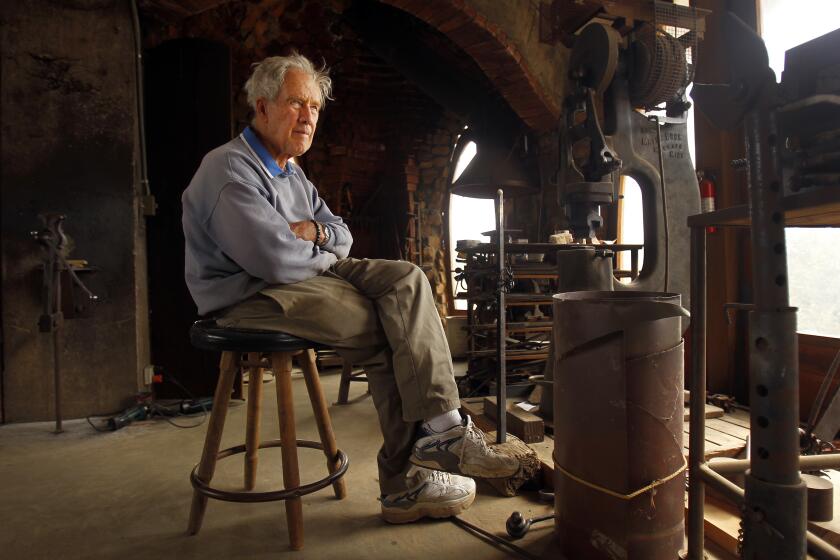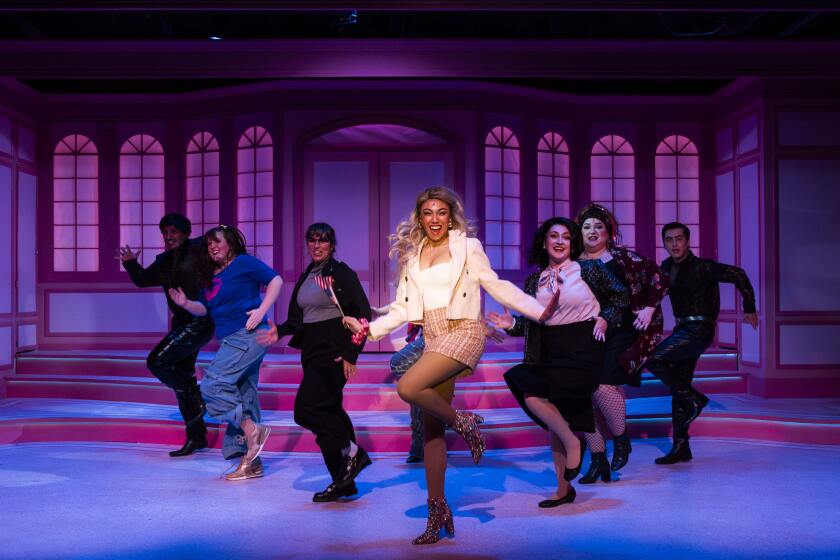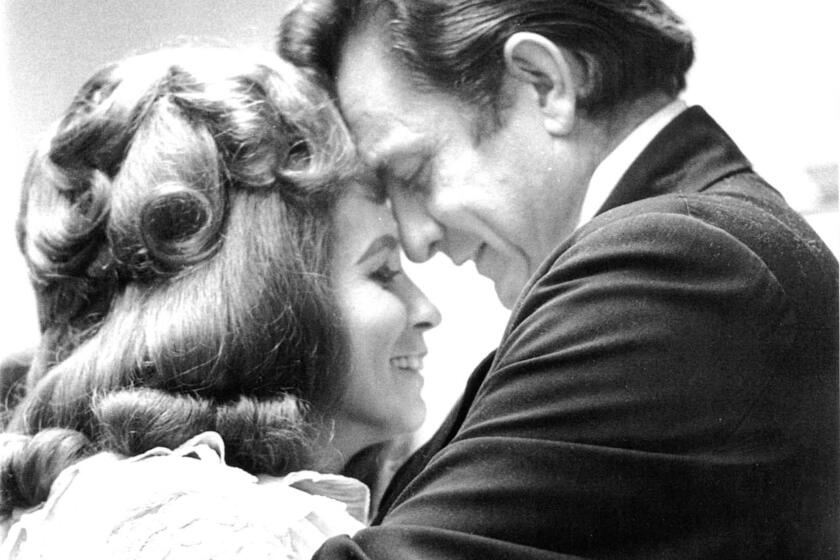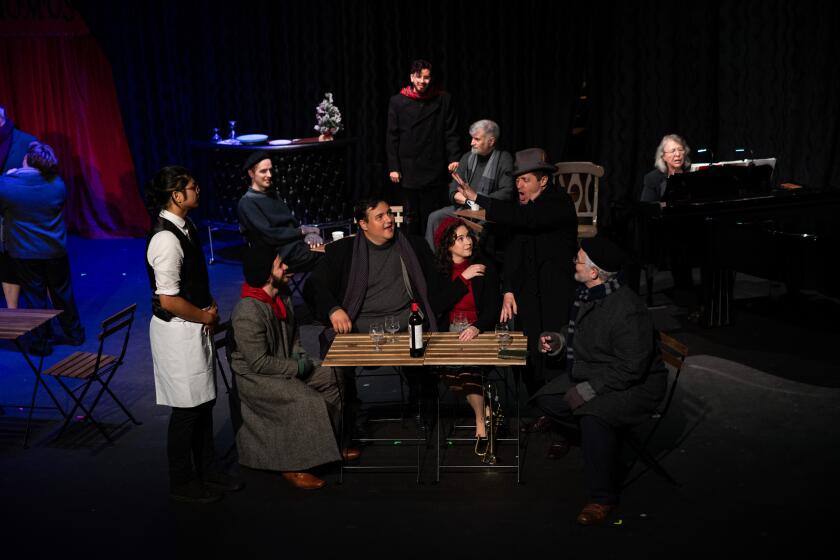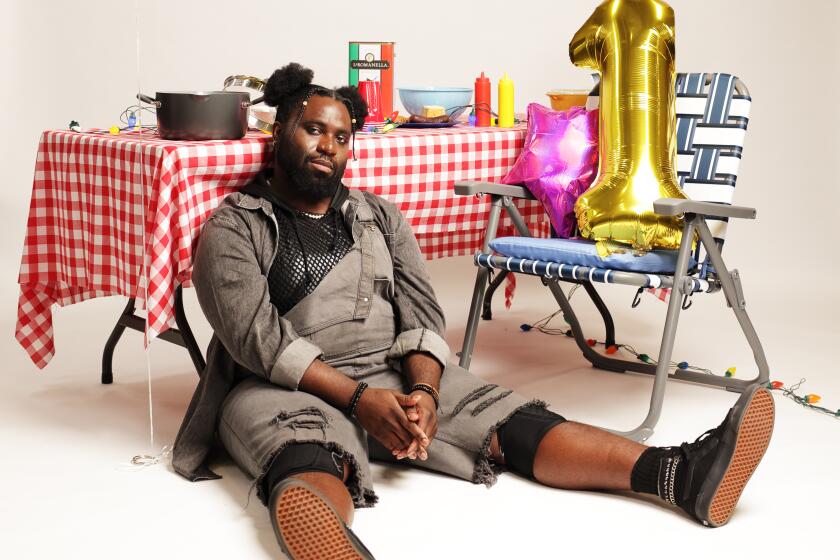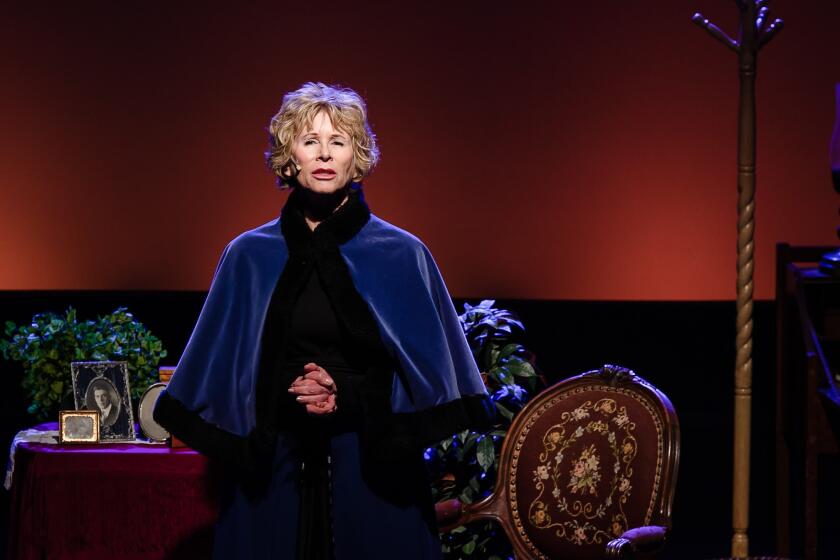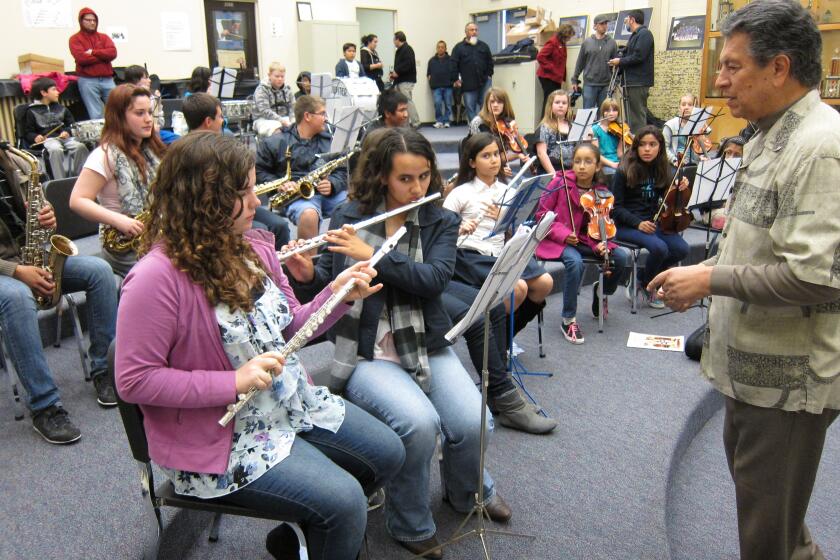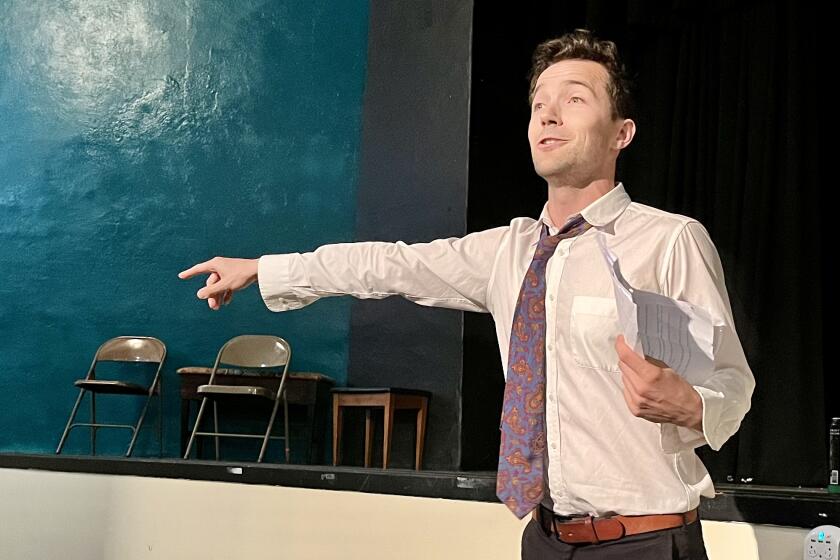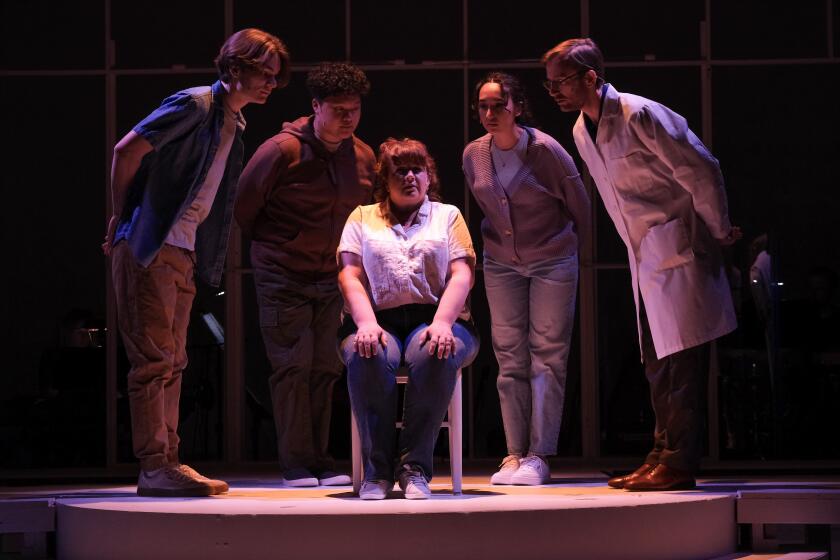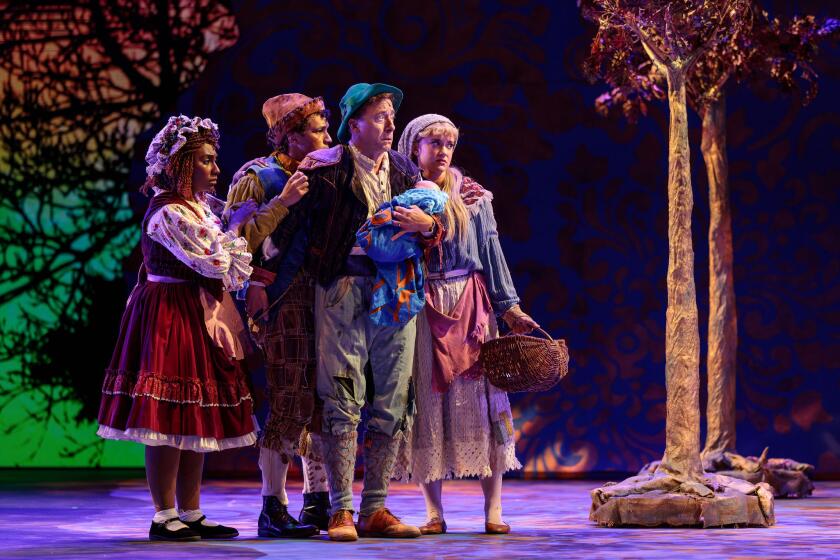Review: Josh Rhodes’ haunting reimagining of ‘Cabaret’ makes it new again at Old Globe
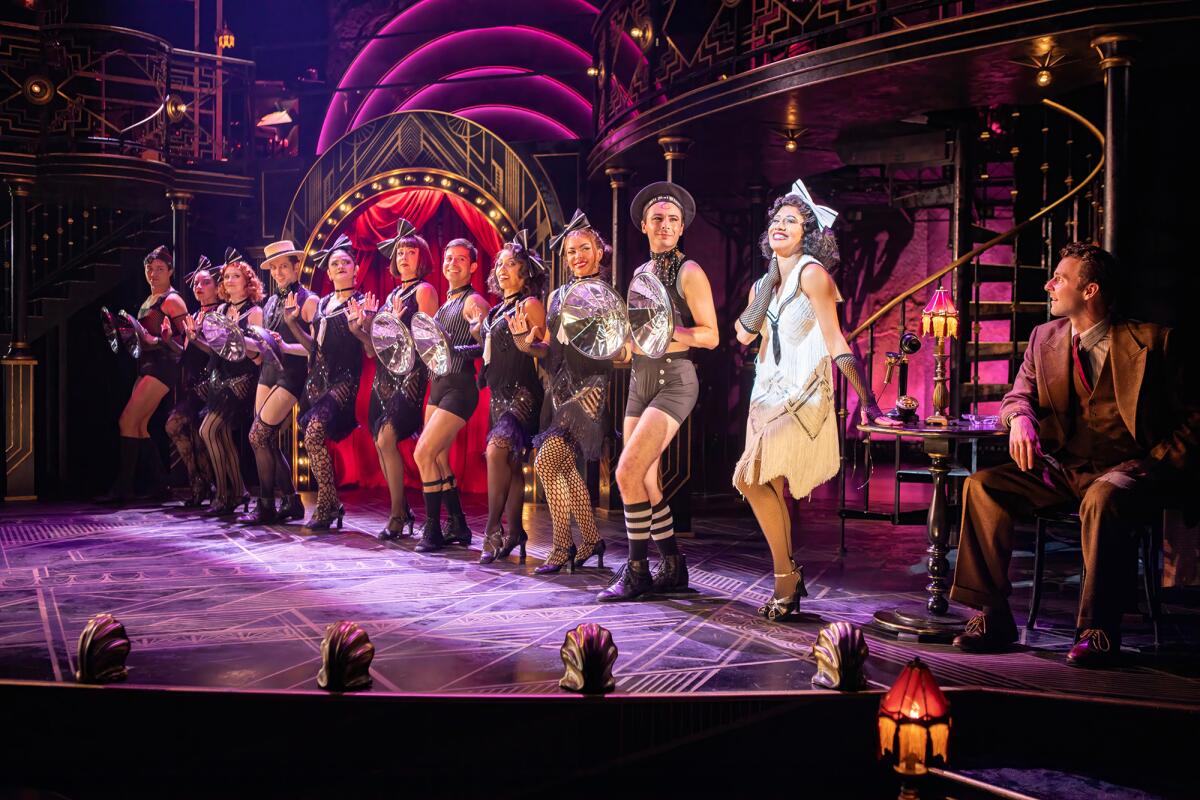
Originally produced at Asolo Rep in Florida, the visually stunning production reimagines musical numbers, choreography and characters
As a longtime theater critic, I sometimes struggle to find fresh things to say about a classic musical I’ve seen a dozen times.
But the opposite is true of the “Cabaret” that opened Wednesday at the Old Globe. I can’t say enough about this dazzling and innovative production of the 1966 Kander and Ebb musical. The staging by director-choreographer Josh Rhodes looks and sounds different from any “Cabaret” I’ve ever seen.
Rhodes first staged this production at Asolo Repertory Theatre in Florida. It has been remounted at the Globe with about two-thirds of its original cast. Robert Meffe, a Broadway veteran who now heads San Diego State University’s MFA musical theater program, is this production’s musical director, conductor and accordionist.
Set in Berlin’s decadent Kit Kat Klub in 1931 on the eve of the Nazis’ rise to power, “Cabaret” is most often presented on an intentionally shabby and dark nightclub set and its dancers, in bob wigs and bowler hats, perform Bob Fosse’s original 1966 choreography. But in Rhodes’ vision, the Klub designed by Tijana Bjelajac is an elegant and visually stunning two-story Art Deco affair, with accents of its curves, angles and sunburst patterns echoed in Alejo Vietti’s colorful and luxurious costumes.
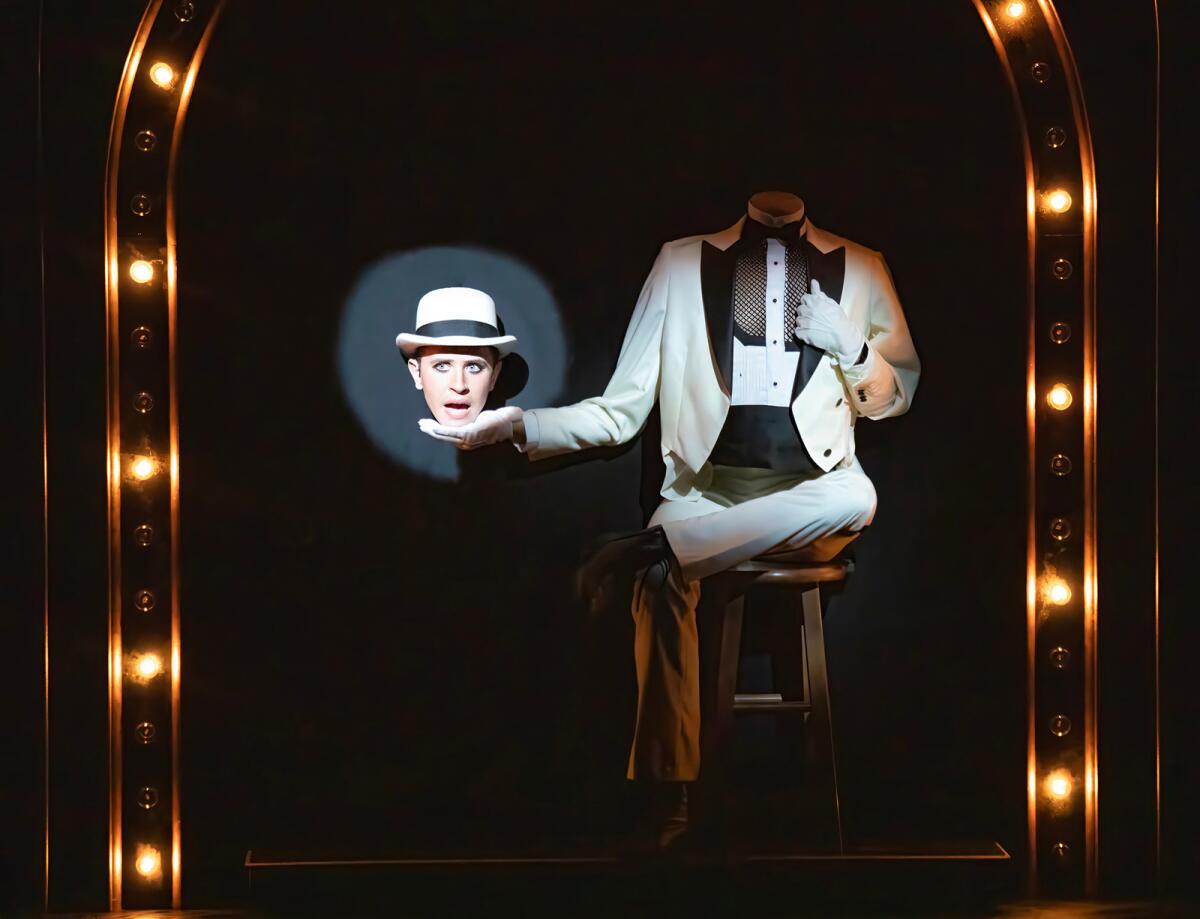
With Meffe leading the tuxedoed orchestra from the set’s balcony, the pit area has been covered to make room for six cabaret tables where audience members sip cocktails and get extra-special attention from the club playfully bawdy Emcee (Lincoln Clauss) and sleazy owner Max (Christian Douglass). The club’s British chanteuse Sally Bowles, written to be a lousy singer, is instead a Black woman who’s career has been hampered not by her talent but her skin color. Joanna A. Jones is a vocal standout with her powerhouse, smoky voice.
Rhodes’ influence can also be seen in how he directed and choreographed the musical numbers in new ways. His choreography isn’t Fosse-like. It’s more expansive with elements that suggest the dance styles of the late 1920s and the floor choreography for “Mein Herr” has a 1930s Busby Berkeley look.
Half of the verses in the patriotic fatherland anthem “Tomorrow Belongs to Me” are sung in German. The song “Money,” usually performed as a nightclub comedy bit, is instead staged to show the many smuggling trips American novelist Cliff Bradshaw (subtly played by Alan Chandler) makes by train, not realizing the suitcases he’s carrying for a friend contain cash for the Nazi party.
The Emcee’s cruel “If You Could See Her” love ballad to a Jewish girl is sung not to a dancer in an ape costume but in a pig costume, since German propaganda in the ‘30s referred to Jewish people as swine or rats. Clauss’ Emcee gradually adopts the beliefs and clothing style of the Nazis, but his fate as a gay man, and those of many of the other unsuspecting Germans, is hauntingly sealed in the show’s surprise finale.
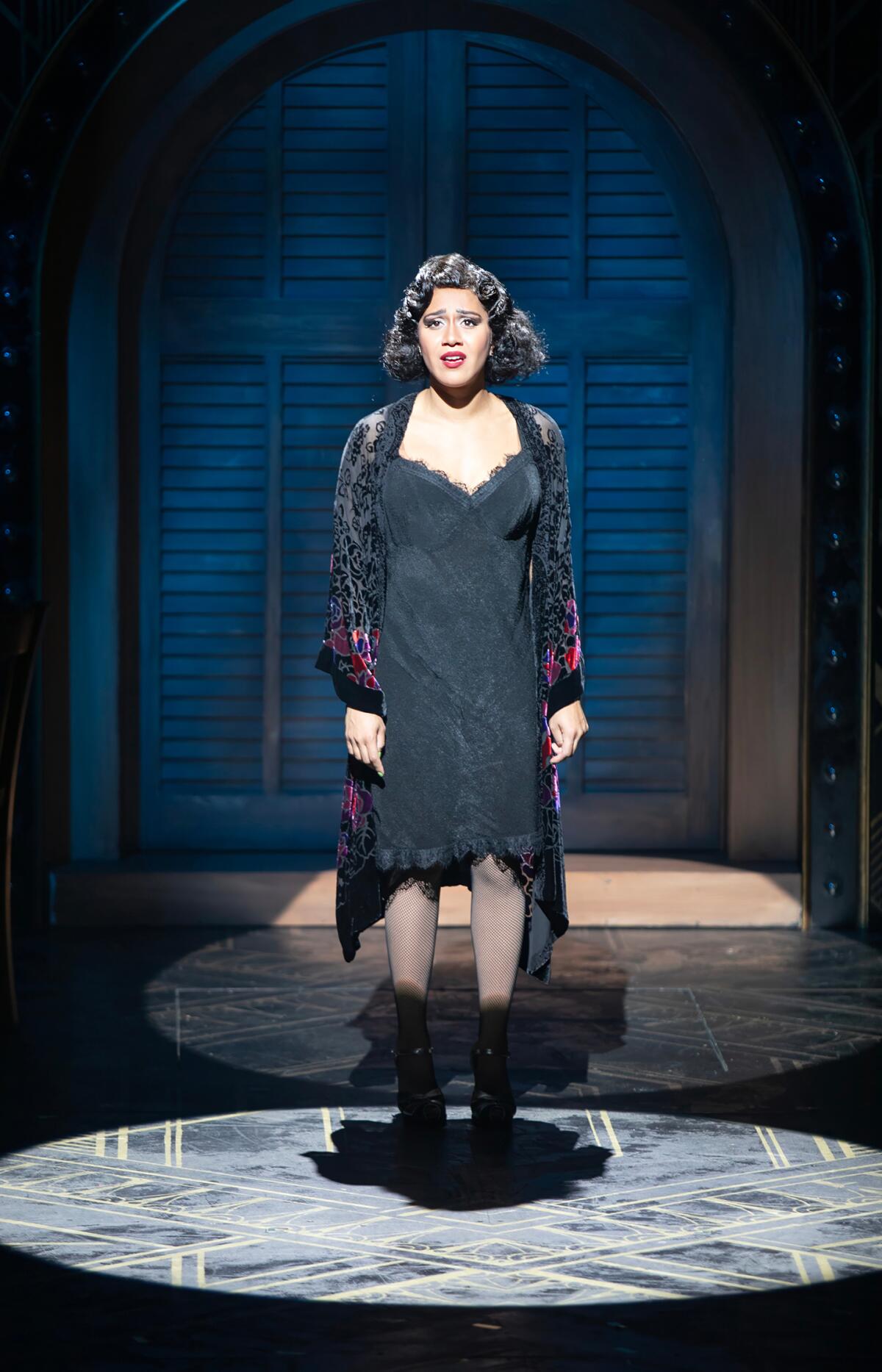
Usually the relationship between the fame-hungry Sally and repressed homosexual Cliff is the centerpiece of “Cabaret.” But in this production, it’s the doomed love story between Sally’s lonely landlord, Fraulein Schneider, and Jewish fruit merchant Herr Schultz, that steals the show. Kelly Lester’s heart-wrenching performance of the song “What Would You Do?” — where she explains why she ends the love affair over fear of Nazi oppression — is the linchpin of the show.
In “Cabaret,” most of the characters are oblivious to the rise of antisemitism, racism, violence, fascism and authoritarianism in their midst. In 1933, Adolf Hitler would be named German chancellor. One hundred years later, neo-Nazis and White supremacists are fomenting hate, violence and insurrection in the United States. “Cabaret” has never felt more timely.
‘Cabaret’
When: 7 p.m. Tuesdays and Wednesdays. 8 p.m. Thursdays and Fridays. 2 and 8 p.m. Saturdays. 2 and 7 p.m. Sundays. Through Oct. 8.
Where: Old Globe Theatre, 1363 Old Globe Way, Balboa Park
Tickets: $52 and up
Phone: (619) 234-5623
Online: theoldglobe.org
Get U-T Arts & Culture on Thursdays
A San Diego insider’s look at what talented artists are bringing to the stage, screen, galleries and more.
You may occasionally receive promotional content from the San Diego Union-Tribune.

